My OpenLearn Create Profile
- Personalise your OpenLearn profile
- Save Your favourite content
- Get recognition for your learning
Already Registered?
Course
Mobile Blogging - A Course for Educators
About this course
- 10 hours study
- 2Level 2: Intermediate
Ratings
5 out of 5 stars
Sign up to get more
You can start learning at any time. By signing up and enrolling you can track your progress and earn a Statement of Participation upon completion, all for free.
View this courseSign up to get more
- Mobile Blogging - A Course for Educators
- Mobile Blogging - A Course for Educators
Course learning outcomes
- Discuss the benefits and challenges of various forms of digital pedagogy.
- Reflect on your learning by writing in a personal blog.
- Discuss the benefits of blogging for expression of identity.
- Discuss the links between digital pedagogy and blogging.
- Discuss the challenges of open educational practices.
- Share ideas on how blogging could be used to enhance learning and teaching practice.
- Discuss how the affordances offered by mobile technology can enhance learning and teaching practice.
- Discuss the perspective that mobile technology offers the learners a vehicle to express their thoughts in a virtual space.
To enrol on this course, sign in and create your free account
To enrol on this course, sign in and create your free account
If this is your first visit to this site, you need to register for a free account, then login on this site and click on the Enrol button for this course.
Course dates:
First Published 14/12/2020.
Updated 27/02/2021
Course content
- Part 1: Aspects of Digital Pedagogy
- Part 2: Blogging for Education
ExpandPart 2: Blogging for Education
In this week we will cover some of the benefits and challenges of using blogging as an open educational approach to enhance learning and teaching.
Learning Outcomes:
- Discuss the benefits of blogging for expression of identity.
- Discuss the links between digital pedagogy and blogging.
- Discuss the challenges of open educational practices.
- Share ideas on how blogging could be used to enhance learning and teaching practice.
-
What is a blog?
Watch the following video which introduces the concept of what a blog is.
Now that you've been introduced to the idea of what a blog is, have a look at the questions posted in the discussion forum below.
-
Educational Benefits of Blogging
Blogging has a number of potential benefits both as a pedagogical approach useful in learning and teaching, but also as a method of practicing Scholarship of Learning and Teaching.
1. For our learners, it has been shown by Tanti (2012) that blogging has benefits for literacy development:
"In addition to the development of traditional literacy skills, concerned mainly with the ability to construct 'well structured and well presented' texts, the collaborative use of the classroom blog provided students with the means to develop critical literacy skills in relation to interacting with an audience and with each other."
The paper produced by Tanti (2012) is linked in the references below for anyone who would like to read more. But key features of her findings are as follows:
(a) Blogging embraces a multimodal view of literacy which includes reading, viewing, understanding, producing and interacting with multimedia and digital communications.
(b) Blogs are cost effective and intuitive enabling students to construct knowledge at their own pace. They are also known to increase participation and motivation due to the nature of the broad audience.
(c) Studies of blogs have shown that contemporary blogs emerge through reading, writing and linking and often resemble journal entries.
(d) The teacher, by posting a blog entry of their own, not only becomes a member of the community but also models the behaviours and skills that students can follow in order to develop their own literacy skills.
(e) The pedagogy and behaviours required in blogging embraces the higher order thinking skills outlined in Bloom's Taxonomy. (This image below can be downloaded and magnified by clicking on the link shown underneath).
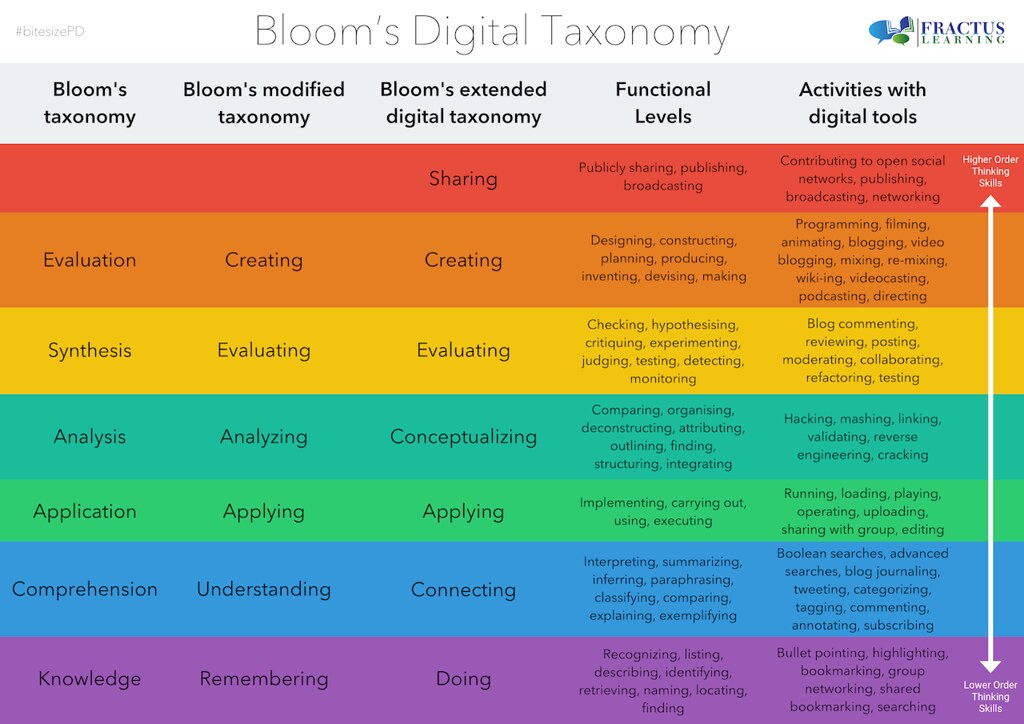
("la taxonomie de Bloom en fonction du numérique #Bloom #education via Bloom’s ‘Digital’ Taxonomy – Printable Reference Table" by eric.delcroix is licensed under CC BY-NC-SA 2.0)
2. Blogging also provides benefits for ourselves as educators enabling us to engage with the Scholarship of Teaching and Learning (SoTL) as part of our own continuing professional development.
Boyer (1990, as cited by Weller, 2011) highlights that there are 4 main activities that are associated with SoTL:
Discovery - Technology affords us so many opportunities to discover and share knowledge quickly and easily.
Integration - Technology allows us to work in ways which embrace interdisciplinarity and foster collaborations with experts around the world at the touch of a button.
Application - crucially this is an aspect of scholarship where we look beyond the walls of the institution to see how knowledge can be applied in the community.
Teaching - Boyer argues that knowledge is inconsequential if it is not understood by others.
Academic blogging therefore allows us to engage in open digital scholarship by affording us with the opportunity to communicate with others.
As Scholarship is not the primary aim of the course, links are provided below to articles written by the University of Leicester (N.D.) and by Palmer (2015) where the principles of SoTL and the benefits of blogging as a teacher are explored in more detail. However, just to highlight some possibilities:
(a) Would you consider sharing your students successes on your own blog?
(b) Would you consider sharing your ideas and resources with other teacher via your own blog?
(c) Could you use your own blog to connect with other like-minded educators?
Never-the-less, despite all of these benefits that blogging provides as an open educational practice (OEP) it can also present challenges. Click on the discussion forum below to consider further the challenges of blogging as an open educational practice.
-
Examples of Blogs
One of main challenges for people who haven't written a blog before is that they don't know what to write about or where to start. As a blogger, my guiding principle is that I write about the things that are important to me. Things that have happened in my life, at work or in my own learning that have made an impact in some way.
Through blogs we can write about events that happen in our life, what we learn from them and how it impacts on our work. We can write about events that happen at work, what we learn from them and how it impacts our life. We may even find that learning that occurs as part of our own continuing professional development impacts our life and our working practices in ways we didn't expect. But importantly it builds on the professional habits of reflective practice.
Greenwood (2003) highlights that there are a number of approaches to reflective practice, but ultimately the goal is, "the creation of a world that more faithfully reflects the values and beliefs of people in it, through the construction or revision of people's action theories." There is a link provided to Greenwood's article below in the references section for anyone who wants to read more. But one of the most useful things in this article is that Greenwood provides reference to a number of frameworks for reflection. While her writing reflects the needs of the Nursing and Healthcare sector, there are definitely lessons that can be learned from her work for the education sector too.
However, despite all these models, sometimes a simple example can make all the difference so, here are links to three blog articles which will hopefully inspire you to try writing a blog of your own and, if you take time to read them, give you food for thought too.
1. Reflecting Allowed - this is the reflective blog of Associate Professor Maha Bali from the American University in Cairo.
2. Finite Eyes - this blog is maintained by Professor Mathew Cheney of Plymouth University.
3. Mc2 = ELearning Reflections - this is my own personal blog which I am sharing with you.
-
Consolidation
Firstly, what have you learned in this part of the course? Have you had any breakthrough moments? Would you consider changing any of your online learning and teaching practices as a result of what you've learned? Would you want to learn more?
Secondly, do you have any thoughts about about the way this course has been presented so far? Is there anything that you would change? How long did it take you to complete?
Please use the blogging activity below to record your thoughts.
- Discuss the benefits of blogging for expression of identity.
- Part 3: Affordances of Mobile Technology
ExpandPart 3: Affordances of Mobile Technology
In this week we will examine some of the affordances of using mobile technology to enhance learning and teaching.
Learning Outcomes:
- Discuss how the affordances offered by mobile technology can enhance learning and teaching practice.
- Discuss the perspective that mobile technology offers the learners a vehicle to express their identity in a virtual space.
-
A Simple Experiment to Start
Last week you were introduced to the concept of blogging, the educational benefits for your learners and for yourself as an educator. This week we conclude the course by considering affordances of mobile devices and the benefits they offer our learners. Finally we discuss the opportunities to use mobile blogging in a range of settings to encourage a multimodal approach to literacy.
Just to get you started thinking about the affordances of mobile technology, let's try an experiment. This experiment assumes that you're working through this course on a PC or Laptop. It won't work if you're viewing this course on a mobile device like a smartphone or tablet because you need your mobile device separately to complete the instructions that follow.
Open your QR Code Scanner app. Scan the QR Code in the image below. This image was originally designed as an advertisement for this course. But as you scan the QR code with a mobile device you should find that an augmented reality layer appears. You should be able to view and play two videos and click on a button that links to the home page for this course.
This is one example of how mobile technology could be used to enhance physical printouts, posters, Powerpoint slides, moodle courses... anywhere you can put a QR Code. You can turn any object or space into an interactive learning artefact with links to videos, discussion forums, images, websites etc. Your imagination is the only limit.
Are you inspired by the potential of mobile technology? Did you have any difficulty accessing and scanning the QR code? Add your thoughts/comments in the discussion area below. -
Mobile Devices as Life and Thought Companions
Often organisational policy and personal experience guide us to avoid using mobile devices in our learning and teaching.
- "Mobile phones are a distraction."
- "Students are addicted to their mobile phones."
Either of these phrases sound familiar? Well what if there was an alternative viewpoint?
Xiao (2020) points to a different perspective where online spaces could be considered an extension of a person's identity. He points to a number of interviews conducted with students who point to the fact that they place significant emotional investment in their online interactions.
- Online spaces used as an archive for personal life histories and events.
How many of us can relate to that? Retrieving photographs of lost loved ones? Keeping text messages from people we no longer see?
- Amplification of our voice
How often have you been in a room where you felt like no-one was listening so you take to cyberspace (probably social media) to vent your frustrations?
- Strengthen Existing Bonds
How often have you sent someone you know from work a friend request via social media? How does this affect your relationship in real life?
Xiao questions the policies and rules that we apply to the use of mobile phones in educational contexts as being more reflective of adult values and fear rather than enabling youth agency in cyberspace.
Consider a tree. As it grows it branches out. However, unless it has a healthy environment and is looked after by a responsible gardener then it may branch out in directions that it shouldn't go. Similarly with our learners, the context in which they use mobile technology can actually help then to branch out and grow in healthy ways.
If we accept that the appropriate use of mobile technology in education is socially constructed then we must also recognise that parents, teachers, carers and students all attach different meanings and values to their use of technology. The world is changing. Technology is more pervasive in our lives than perhaps at any other time in history. Increasingly, whether or not we choose to use technology, our live are affected by it. Is it not time therefore to reconsider our approaches to education?
If you were to consider the use of mobile blogging as a learning and teaching approach, what would be your concerns and how would you negotiate appropriate use of mobile technology with your students? Use the discussion forum below to record your thoughts.
-
Affordances of Mobile Technology
MacCallum et al (2017) published research where they evaluated the affordances that mobile technologies offer to suppert and enhance the learning experience. Their findings were based on a number of case studies. These case studies showed that when collaborative learning, connectivism and experiential learning approaches were used then that provided a framework within which the affordances of mobile technologies could be harnessed to support and enhance the learning experience.
Specifically their research points to five affordances that mobile technologies offer that can be used to enhance the learning process:
- portability - how often have you had learners out on field trips? Could you be using mobile devices to capture photographs, videos or even data? Learners can capture thoughts, ideas and events in real time as they happen.
- Evidence and Data Gathering - how many of our learners operate in workshops, labs or dangerous environments that are difficult for us to access. Could mobile devices be used to capture evidence in those situations?
- Communication - mobile devices offer the opportunity to broadcast live from various locations, send text messages, made posts to discussion forums and provide immediate feedback. For learners with additional support needs for whom participation in physical activities like field trips would be a challenge, perhaps the ability to watch and communicate with their fellow students would help support inclusion?
- Interaction with the interface - mobile devices offer the opportunity to interact with the internet and a range of web based tools that places knowledge right at their fingertips.
- Outdoor environment - how many learners go out on work placement, work in kitchens, salons, childcare establishments, construction sites etc. Could learners capture evidence from those learning experiences?
From my own experience, working during a pandemic has created a range of difficulties.
I can't easily go an observe a team of students as they assemble a Scaffolding tower - but maybe through the use of mobile technology, I can watch a live broadcast? Or better yet, get the students to record the learning experience and post it on a blog?
I can't always get my class together to discuss main points that an author explores in a written article - but maybe I could post it on my blog and invite my students to comment on it.
The full article by MacCallum et al is linked in the references below for anyone who wants to have a closer read. But I hope that this short summary has provided you with some ideas and inspiration as to how you might use mobile technology in different ways in your learning and teaching practice.
Let's explore those ideas further in this discussion forum.
-
Experiences of Blogging Lecturers
At this point you should be familiar with some of the affordances of using mobile technology to enhance your learning and teaching. You should also you should be familiar with the basics of what a blog is and how you and your students can create a blog quickly and easily.
However, how does it work in practice?
I myself have also been a blogging for a few months now, but I have done so using a mobile app. All of my blogging has been done on my mobile phone. So in the video below I share a little bit of my experience as a mobile blogger.
So, having reached the end of the course, what are your thoughts? Post your comments in the following discussion forum.
- References
ExpandReferences
Atherton, J. (2013) Systems and Conversations: Pask and Laurillard [Online]. Available at: https://www.doceo.co.uk/l&t/learning/pask.htm (Accessed 26th November 2020).
Bali, M. (2020) Reflecting Allowed: Maha Bali's blog about education [Online]. Available at: https://blog.mahabali.me/ (Accessed 22nd December 2020)
Cheney, M. (2018) How Public? Why Public? [Online]. Available at: https://finiteeyes.net/pedagogy/how-public-why-public/ (Accessed 1st December 2020).
Edublog (N.D.) What is a blog? [Online]. Available at: https://help.edublogs.org/videos/ (Accessed 29th November 2020).
Ferguson, R. and Sharples, M. (2014) Innovative pedagogy at massive scale: teaching and learning in MOOCs [Online]. Available at: https://www.youtube.com/watch?v=72wdI1R4lfk&t=302s (Accessed 26th November 2020).
Greenwood, J. (2003) The role of reflection in single and double loop learning [Online]. Available at: https://onlinelibrary-wiley-com.libezproxy.open.ac.uk/doi/full/10.1046/j.1365-2648.1998.00579.x (Accessed 1st December 2020).
Jones, D. (2020) Connectivism [Online]. Available at: https://elearning2020.pressbooks.com/chapter/connectivism/ (Accessed 26th November 2020).
MacCallum, S., Day, S., Skelton, D. and Verhaart, M. (2017) Mobile Affordances and Learning Theories in Supporting and Enhancing Learning [Online]. Available at: https://www.researchgate.net/publication/315392914_Mobile_Affordances_and_Learning_Theories_in_Supporting_and_Enhancing_Learning (Accessed 6th December 2020).
McIntosh, M. (2020) Walking away... an act of survival [Online]. Available at: https://mcsquaredreflections.blogspot.com/2020/11/walking-away-act-of-survival.html (Accessed 1st December 2020).
McIntosh, M. (2020) Mathematical Sociology... Maths is not just for geeks! [Online]. Available at: https://mcsquaredreflections.blogspot.com/2020/11/mathematical-sociology-maths-is-not.html?m=1 (Accessed 1st December 2020).
MESHGuides (N.D.) Definition of Communities of Practice [Online]. Available at: http://www.meshguides.org/guides/node/942 (Accessed 26th November 2020).
Open Education Global (N.D.) What is Open Education [Online]. Available at: https://www.openeducationweek.org/page/what-is-open-education (Accessed 26th November 2020).
Open University (2020) The online disinhibition effect [Online]. Avalable at: https://www.open.edu/openlearncreate/mod/oucontent/view.php?id=153566§ion=1.1. Accessed 26th November 2020.
Palmer, T. (2015) 9 Reasons Why Teachers Should Blog [Online]. Available at: https://www.edutopia.org/discussion/9-reasons-why-teachers-should-blog (Accessed 29th November 2020).
Tanti, M. (2012) Literacy Education in the Digital Age: Using Blogging to Teach Writing [Online]. Available at: https://files.eric.ed.gov/fulltext/EJ1144932.pdf (Accessed 29th November 2020).
University of Leicester (N.D.) Introduction to Scholarship of Teaching and Learning (SoTL) [Online]. Available at: https://www2.le.ac.uk/offices/lli/recognition-for-teaching/teaching-excellence-microsite/introduction-to-the-scholarship-of-teaching-and-learning-sotl (Accessed 29th November 2020).
Weller, M. (2011) The Digital Scholar: How Technology is Transforming Scholarly Practice, London, Bloomsbury.
Weller, M. (2020) 25 Years of OU: 2010 Podstars [Online]. Available at: http://blog.edtechie.net/ (Accessed 1st Deceember 2020).
Xiao, Z. (2020) Mobile Phones as Life and Thought Companions [Online]. Available at: https://www-tandfonline-com.libezproxy.open.ac.uk/doi/pdf/10.1080/02671522.2019.1601757?needAccess=true&; (Accessed 4th December 2020).
To enrol on this course, sign in and create your free account
To enrol on this course, sign in and create your free account
If this is your first visit to this site, you need to register for a free account, then login on this site and click on the Enrol button for this course.
Course Reviews
3 Ratings
3 reviews for this course
This course is rated 5
Rate this course
- Sign up to join in
We invite you to discuss this subject, but remember this is a public forum.
Please be polite, and avoid your passions turning into contempt for others. We may delete posts that are rude or aggressive; or edit posts containing contact details or links to other websites.
Course reviews
Arrgh
Didn't put the star rating on the prior post. This is definitely a 5 out of 5.
Thorough investigation of blogging
This course has some excellent content for masters in education students, current teachers and would be bloggers. Some excellent quotable content that expands your knowledge of the pedagogical principles behind blogging. The video at the end will get you thinking about how you would use a blog if you wanted to try it yourself
Rating entered. No review given
To enrol on this course, sign in and create your free account
To enrol on this course, sign in and create your free account
If this is your first visit to this site, you need to register for a free account, then login on this site and click on the Enrol button for this course.
ExpandCopyright information
This course is made available under CC BY-NC-SA 4.0
Any third-party materials featured in this course are used with permission and are not ours to give away. These materials are not subject to the Creative Commons licence. See the terms and conditions and our FAQs. Please see the course acknowledgements for further information about copyright details.
For further information, take a look at our frequently asked questions which may give you the support you need.
If you have any concerns about anything on this site please get in contact with us here.
About this course
- 10 hours study
- 2Level 2: Intermediate
Ratings
5 out of 5 stars
Sign up to get more
You can start learning at any time. By signing up and enrolling you can track your progress and earn a Statement of Participation upon completion, all for free.
View this courseSign up to get more
Share this course
ExpandCopyright information
This course is made available under CC BY-NC-SA 4.0
Any third-party materials featured in this course are used with permission and are not ours to give away. These materials are not subject to the Creative Commons licence. See the terms and conditions and our FAQs. Please see the course acknowledgements for further information about copyright details.
For further information, take a look at our frequently asked questions which may give you the support you need.
If you have any concerns about anything on this site please get in contact with us here.

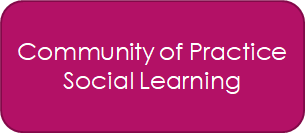 .
.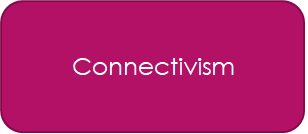 .
. .
.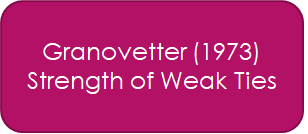 .
. .
.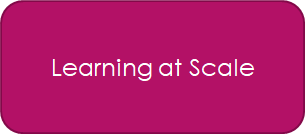 .
. .
.